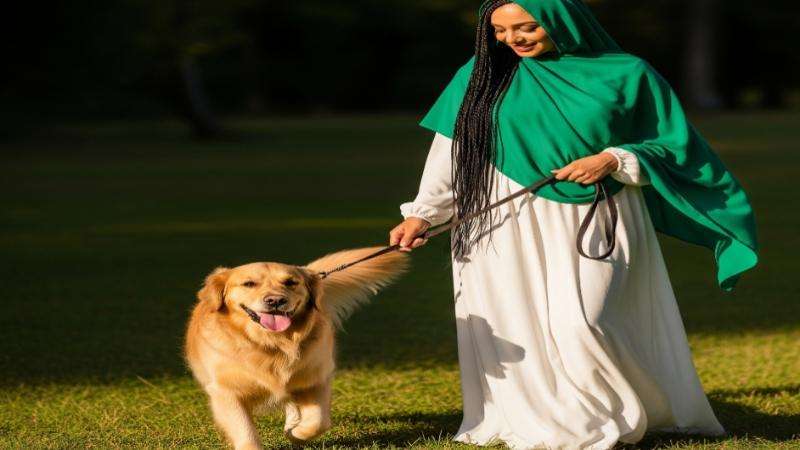A cherished daily ritual for millions globally has become a perilous act in Iran, as authorities expand a long-standing ban on dog walking to at least 20 cities, extending far beyond the capital, Tehran. Where similar restrictions have been in place for years. This nationwide crackdown intensifies the debate over individual freedoms, public order, and the interpretation of Islamic culture within the Islamic Republic.
The official rationale, as cited by the state newspaper Iran, points to "maintaining public order, ensuring security and protecting public health." However, critics and many observers suggest a deeper cultural and political motivation. For a significant segment of Iran's religious hardliners, dogs are perceived as symbols of impurity (najis) and, more significantly, as harbingers of Western lifestyles and influence, which they view as a threat to traditional Islamic values.
The Ayatollah's Stance and the Symbolic Impact
The sentiment underpinning the ban was articulated clearly in 2017 by Iran's Supreme Leader, Ayatollah Ali Khamenei. He declared that "keeping dogs for reasons other than herding, hunting, and guard dogs is to be considered reprehensible," further elaborating that "walking dogs damages Islamic culture as well as hygiene and the peace of others." This authoritative statement provides significant backing for the ongoing enforcement and expansion of the ban.
While official ownership of dogs is not outright prohibited in Iran, the daily lives of dog owners are becoming increasingly precarious. Authorities have, in recent years, incrementally tightened restrictions, banning dogs from cars, parks, and other public spaces. Enforcement, however, remains notoriously arbitrary, fluctuating between periods of turning a blind eye and sudden, severe crackdowns. Reports from dog owners are increasingly alarming, detailing instances of confiscation and threats against their beloved pets.
Despite the escalating risks, many Iranian dog owners, particularly within Tehran, bravely continue to walk their pets in public, transforming what was once a simple act into a quiet form of defiance. With each extension of the ban, the stakes rise, making a casual dog walk a potentially political act and highlighting a growing cultural battle within Iranian society.
Islam and the Canine Companion: A Deeper Look
The widespread perception in Iran among some conservative circles that dogs are inherently "unclean" and their presence "damages Islamic culture" warrants a closer examination of Islamic teachings. The understanding of dogs in Islam is nuanced and often subject to varying interpretations across different schools of thought and cultural contexts.
The Holy Quran itself does not explicitly prohibit keeping dogs as pets or their general interaction with humans. In fact, the story of the "People of the Cave" (Surah Al-Kahf, Chapter 18) positively mentions a dog guarding the sleeping youths, depicting it as a loyal companion. This narrative is often cited by those who argue against the blanket condemnation of dogs in Islam.
The primary source for the notion of dogs being "unclean" comes from certain Hadith (sayings and actions of the Prophet Muhammad). Some Hadith traditions indicate that angels do not enter a house where a dog is present and that utensils licked by a dog must be washed a specific number of times, one of which must be with earth. These Hadith are often interpreted by some scholars to mean that dogs are ritually impure (najis), particularly their saliva.
However, it is crucial to note that these Hadith primarily pertain to ritual purity (tahara) in the context of prayer and worship, rather than a general prohibition on interaction or companionship. Many Islamic scholars and schools of thought have offered more moderate interpretations. There is broad consensus that dogs kept for legitimate purposes such as hunting, herding, and guarding property are permissible and even encouraged in Islam. The Hadith often differentiate between such working dogs and those kept purely for companionship.
The concern about purity, particularly regarding dog saliva, is often understood in the context of ritual ablution before prayer. It does not necessarily translate to a blanket ban on pet ownership or deeming dogs inherently "evil." Many scholars emphasize that the impurity is specifically tied to their saliva for ritualistic purposes, not their general touch or presence. Furthermore, Islam strongly emphasizes mercy and kindness towards all living creatures. Numerous Hadith highlight the reward for showing compassion to animals, including dogs. One famous Hadith narrates the story of a man who gained entry into paradise for giving water to a thirsty dog.
Finally, the perception of dogs has also been influenced by historical and cultural factors in various Muslim-majority societies. In some nomadic or agricultural societies, dogs were highly valued for their utility, while in others, particularly urban settings, purity concerns gained more prominence.
In conclusion, while certain Hadith traditions raise concerns about the ritual purity associated with dogs, particularly their saliva, the Quran does not condemn dogs, and the broader Islamic ethos promotes kindness to all animals. The current Iranian ban, while framed in terms of public health and order, appears to lean heavily on a conservative interpretation of Islamic purity laws and a cultural aversion to what is perceived as "Western" influence, rather than a comprehensive and universally accepted Islamic prohibition on dog ownership or interaction. The ongoing struggle between Iranian authorities and dog owners thus underscores a deeper societal tension regarding the interpretation of religious doctrine in modern life.








.svg)


_6.jpg)